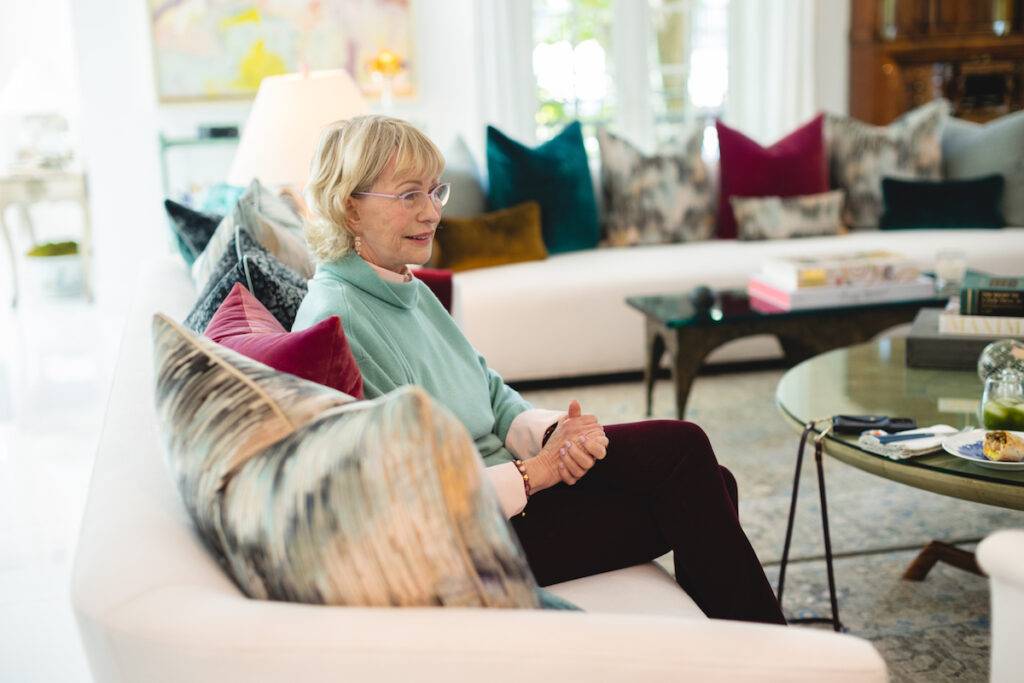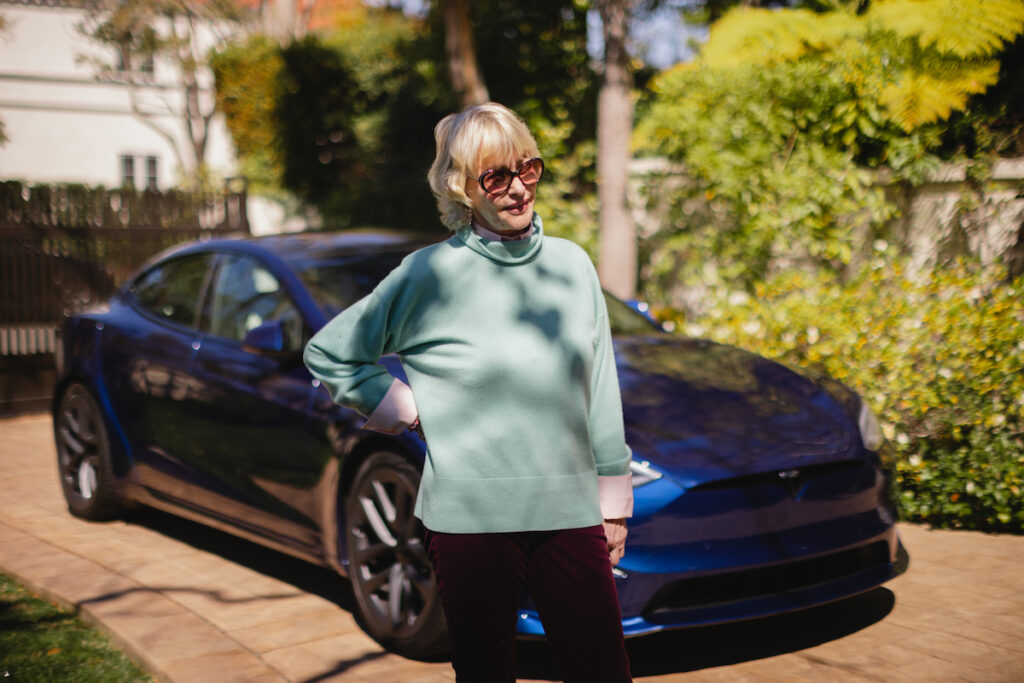Hollywood’s early environmentalists have been galvanizing celebrities for years, and they aren’t stopping any time soon.
Editor’s note: Bluedot Living visited the legendary Norman Lear and his wife, Lyn, earlier this year at their home on one of those beautiful, wide, tree-lined Beverly Hills streets, in a house embraced by lush gardens. The house was abuzz, with their son-in-law, Daniel Katz, founder of the Rainforest Alliance in a back room handling a crisis. (You could say that for the Lears, the environment is All in the Family.)
Now more than 100 years old, Norman’s charm and wit are fully intact, his hearing only slightly diminished. He opened his arms to welcome us.
To celebrate his 100th birthday last year, Norman’s wife and friends arranged a victory tour for him from Los Angeles to New York. Despite a travel schedule that might have crushed someone half his age, Norman bowed to rooms full of applauding admirers, sometimes hundreds, with an easy grin, his famous hat making him look impish, and offered his refrain, “Boy, was I lucky.”
Everyone knows it was more than luck that made Norman Lear the most successful Hollywood writer-producer in television history. He’s talented, determined, has moxie, a natural love of people and a deep sense of fairness. His passion for justice has been at the heart of his writing, delivered with humor, and at the heart of his activism.
In life, Lyn smooths the way for him and is a powerhouse, activist and filmmaker in her own right. She woke up to the dangers of climate change and the degradation of the environment long before almost anyone in the film and television industry took notice. She has made the environment an important focus of her life.
We wanted to learn more about Lyn’s journey and her accomplishments; here’s the conversation Bluedot editor and reporter Lily Olsen had with Lyn.
–Victoria Riskin
Sipping on green juice in her living room, Lyn tells me about her experiences as one of Hollywood’s early environmentalists. Hollywood provides a platform for celebrities who want to speak out about climate change, both on and off the screen. But behind the scenes, Lear and her husband, long-time producer and screenwriter Norman Lear, have been responsible for galvanizing many of Hollywood’s most outspoken climate activists.
Over the 35 years that the Lears have brought environmental messaging to the media and energized celebrity activists, the film industry has remained relatively unwelcoming to overt climate messaging in movies and television programs. A 2022 study conducted by Good Energy and the USC Norman Lear Center found that only 2.8% of scripts contained references to climate change. But despite ambivalence and political polarization on the issue, the Lears continue to organize people in hopes of making a change.
Lear’s environmental work began in 1988 at a lunch with actress Cindy Horn. The women were both pregnant at the time, and they discussed what the world might look like when their children reached adulthood. The consequences of sea level rise, species extinction, and food shortages painted a bleak picture of earth’s future.

Lear began researching environmental issues. She met with the heads of Big Green, a group of ten major environmental organizations including the Sierra Club and the Natural Resources Defense Council, to discuss how she could take action. Lear concluded that she could use her access to Hollywood to spread awareness of environmental issues through the media.
The two women, along with their husbands (Cindy Horn is married to Hollywood executive Alan Horn), founded the Environmental Media Association (EMA) in 1989, with the goal of using media to alert people to the perils of harmful environmental practices. “This was way before it was cool to be green in Hollywood,” Lear says.
They started by gathering the heads of all the studios and networks over breakfast to discuss everything from sea level rise to deforestation. “All of these things that were happening then are still happening now,” Lear says.
These breakfast discussions caught on, and the EMA founders eventually created the annual Environmental Media Awards, offering recognition to film and television productions that contained environmental messages.
“It opened up the door for more progress in Hollywood,” Lear says.
After they launched the EMA, the Lears’ environmental activism took off.
While her films span a range of genres, Lear has produced a number of documentaries covering environmental themes, including Fantastic Fungi, Bring Your Own Brigade, and The Last Animals.
In addition, Lear serves on the board of the LA Sustainability Leadership Council and was a founder of Project Drawdown, a nonprofit that maintains a database of climate solutions. She is also an advisor to The Near Future Summit, which brings together values-driven entrepreneurs, investors, and philanthropists to discuss ideas and innovations, and Obvious Ventures, a venture capital firm with social and environmental causes in mind.
“We have all the solutions [to the climate crisis], and for our children’s sake we have to take care of it,” Lear says.
A major part of Lear’s activism has been calling upon celebrities and influential people to amplify climate messages. Al Gore and Mikhail Gorbachev have been keynote speakers at the EMA Awards. In addition, Lear is frequently in contact with some of the most vocal environmentalists in Hollywood — she recently had dinner with Leonardo DiCaprio, and they discussed the promise of quantum computing to accelerate the discovery of climate solutions.
Until a year and a half ago, when they moved to Beverly Hills, the Lears hosted regular salons (more than 240 over the years) at their home near Mandeville Canyon, where around 50 guests, including many celebrities and Hollywood notables, would hear from experts about cutting-edge ideas in politics, medicine, technology, and environmentalism. They also held film screenings, and it was at a screening of the documentary Who Killed the Electric Car? that Lear met Elon Musk. This was around the time that the Tesla first came out. Lear proudly showed me her Tesla as we walked out of her home.
“I felt like it wasn’t just a big fast car, but it was a big fast car that’s not hurting the environment,” Lear says. “And I’ve encouraged all of our kids to get electric cars.”

Though the Lears have been shining a light on environmental issues for a few decades, challenges still remain in Hollywood. “Most studios or streamers don’t want something that’s just about climate. They worry that it turns off a big part of their audience,” Lear says. (There is actually evidence against this fear: The same Good Energy study that found scant climate references in films and television shows found that almost half of their surveyed respondents said that they want to see climate-related storylines in fictional shows, and another 30% were “neutral.”)
The current political polarization around climate change is discouraging to Lear, especially since, when she started EMA in the 90’s, environmentalism was not as politicized as it is today. But this hasn’t dissuaded her from continuing to use the media to amplify climate messages.
“I’m optimistic actually,” she says.
Every year Lear attends the Near Future Summit, where scientists and innovators present cutting edge climate solutions, from Beyond Meat to recycling robotics. “We have all the solutions, and for our children’s sake, we have to take care of it,” Lear says.
In fact, the Lears touched upon this very topic at a meeting last summer with the United States Special Presidential Envoy for Climate, John Kerry. “We discussed how we can solve all of our climate issues tomorrow or in the next year or two if we had everyone working together on it,” Lear says. Lear points to Project Drawdown’s extensive list of climate solutions. The nonprofit highlights actions it believes we should prioritize and provides studies on the amount of CO2 emissions these efforts can reduce. The solutions include distributed solar photovoltaics, wind turbines, and a broader adoption of plant-rich diets.
That’s why Lear is marching forward in her work to bring climate issues and solutions to the forefront of the media. At the moment, she is working on a docu-series called The Men Who Sold the World, about oil companies, and a film called Blood and Sand, about sand mafias exploiting this diminishing resource for building materials.
For Lear, spreading awareness is the most important piece of the puzzle when it comes to tackling climate change. “We just need to get people united and make them aware that solutions are there, and we can solve this problem,” she says.


